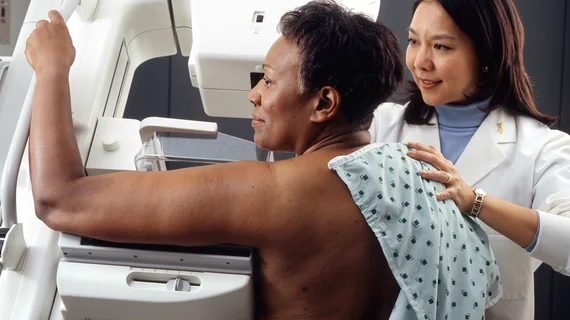SBI publishes policy statement on diversity, inclusion
The Society of Breast Imaging (SBI) has issued a new policy statement on diversity and inclusion, emphasizing the belief that “all people for whom breast cancer screening is appropriate should receive the opportunity to undergo screening.”
The statement, produced by the SBI Communications and Advocacy Task Force, begins by noting that the most effective way to minimize the impact of breast cancer is for all women at an average risk to get annual screening mammograms beginning at the age of 40 and “continue as long as they are in good health.”
Some patient populations are impacted by breast cancer in different ways, however. The statement notes that the breast cancer death rate has decreased 43 percent for white women since 1980, but just 23 percent for black women. In addition, black women are 42 percent more likely to die from breast cancer than non-Hispanic white women and are at a much higher risk of being diagnosed with “aggressive ‘triple-negative’ breast cancer.”
Black women also have less access to screening, and the SBI statement spells out how important it is for all women to be given the opportunity to undergo screening as needed.
“The SBI encourages women who lack adequate health care to seek information and support from hospital, local, state, private, philanthropic, or federal programs to cover the cost of their screening and treatment,” according to the statement. “The society also supports increased financial aid for this group by these organizations.”
The statement goes on to spell out the SBI’s support of gender equality, highlighting that patients “who choose gender transition undergo appropriate screening.”
“Although the data on screening transgender patients are sparse, most experts currently recommend that male-to-female transgender patients who have received breast-enhancing hormones should be screened with mammography annually starting at age 40 years,” according to the statement. “Female-to-male transgender patients who have retained any native breast tissue should also get screening mammograms each year beginning at age 40 years.”
The full statement is available as a PDF here.

